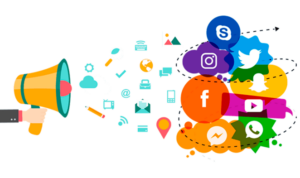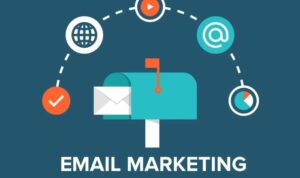Personalization in Marketing sets the stage for this enthralling narrative, offering readers a glimpse into a story that is rich in detail with American high school hip style and brimming with originality from the outset.
Get ready to dive into the world of personalized marketing strategies, as we explore the dynamic ways businesses connect with their target audiences on a whole new level.
Definition of Personalization in Marketing
Personalization in marketing refers to the practice of tailoring marketing messages and content to specific individuals or groups based on their preferences, behaviors, and characteristics. This approach allows companies to create more relevant and engaging experiences for their customers by delivering content that resonates with their unique needs and interests.
Importance of Personalization in Marketing
Personalization in marketing is crucial in today’s competitive landscape as it helps businesses build stronger relationships with their customers, improve customer loyalty, and drive higher conversion rates. By delivering personalized experiences, companies can better understand their customers’ needs and provide them with relevant offers and recommendations, ultimately leading to increased sales and customer satisfaction.
- Personalization enhances customer experience: By showing customers that you understand their preferences and interests, you can create a more personalized and engaging experience that resonates with them.
- Increases customer engagement: Personalized marketing messages are more likely to capture the attention of customers and encourage them to interact with your brand, leading to higher engagement rates.
- Drives customer loyalty: When customers feel valued and understood, they are more likely to remain loyal to your brand and become repeat buyers, ultimately increasing customer lifetime value.
Examples of Personalized Marketing Strategies
1. Amazon’s personalized product recommendations based on past purchases and browsing history.
2. Spotify’s personalized playlists and music recommendations based on listening habits and preferences.
3. Starbucks’ personalized offers and rewards through their loyalty program, tailored to individual customers’ purchase behavior.
Benefits of Personalization in Marketing

Personalization in marketing offers various advantages that can significantly impact the success of a company’s marketing efforts. By tailoring messages and experiences to individual customers, businesses can create more meaningful interactions and drive better results.
Improved Customer Engagement
Personalization can enhance customer engagement by making customers feel understood and valued. When businesses deliver relevant content and offers based on customer preferences and behavior, they are more likely to capture attention and prompt action. For example, Amazon’s recommendation engine uses personalization to suggest products based on past purchases and browsing history, leading to increased sales and customer loyalty.
Increased Conversion Rates
Personalized marketing campaigns have been shown to drive higher conversion rates compared to generic, mass-market approaches. By delivering targeted messages to specific segments of their audience, businesses can better address customer needs and motivations, ultimately leading to more conversions and sales. For instance, Spotify curates personalized playlists for users based on their music preferences, increasing user engagement and subscription rates.
Enhanced Customer Loyalty, Personalization in Marketing
Personalization can foster stronger relationships with customers and build brand loyalty over time. When businesses demonstrate an understanding of their customers’ preferences and interests, they can create more memorable and enjoyable experiences that encourage repeat purchases and advocacy. Starbucks’ loyalty program uses personalized offers and rewards to incentivize customer retention and drive long-term loyalty.
Improved Customer Satisfaction
By personalizing interactions and communications, businesses can address customer needs more effectively and provide better service overall. Tailoring product recommendations, promotional offers, and support resources to individual customers can enhance their satisfaction and loyalty. Nike’s personalized shopping experience allows customers to customize their footwear and apparel, resulting in higher customer satisfaction and brand affinity.
Optimized Marketing Spend
Personalization can help businesses optimize their marketing spend by targeting the right audience with the most relevant messages. By focusing on personalized campaigns that resonate with specific customer segments, companies can reduce wasted advertising dollars and improve the overall return on investment. Coca-Cola’s “Share a Coke” campaign personalized product labels with individual names, leading to increased sales and brand visibility.
Implementing Personalization in Marketing

Personalization in marketing is not just a trend, but a crucial strategy to engage customers and drive sales. Implementing personalization requires a thoughtful approach that incorporates data analytics and tailored content for different target audiences.
Steps to Implement Personalization in Marketing
- Collect Relevant Data: Start by gathering data on customer preferences, behavior, and demographics.
- Utilize Data Analytics: Use data analytics tools to analyze the information collected and identify patterns or trends.
- Segment Your Audience: Divide your audience into specific segments based on common characteristics or behaviors.
- Create Personalized Content: Develop customized content that resonates with each segment of your audience.
- Implement Automation: Use marketing automation tools to deliver personalized messages at the right time and through the right channels.
The Role of Data Analytics in Personalization
Data analytics plays a crucial role in personalization by providing valuable insights into customer behavior and preferences. By analyzing data, marketers can better understand their target audience and create tailored marketing strategies that resonate with customers on a personal level.
Tips for Creating Personalized Content for Different Target Audiences
- Understand Your Audience: Conduct market research to gain insights into the needs and preferences of different customer segments.
- Use Dynamic Content: Leverage dynamic content to personalize messages based on customer interactions and behaviors.
- Personalize Recommendations: Offer personalized product recommendations based on past purchases or browsing history.
- A/B Test Your Content: Test different versions of personalized content to determine what resonates best with each target audience.
- Monitor and Adapt: Continuously monitor the performance of your personalized campaigns and adapt your strategies based on the feedback and results.
Technologies for Personalization in Marketing
Personalization in marketing has evolved over the years with the help of advanced technologies that enable businesses to tailor their messages and offerings to individual customers. Let’s explore some key technologies that play a crucial role in enhancing personalization efforts.
Use of AI and Machine Learning in Personalized Marketing
Artificial Intelligence (AI) and Machine Learning have revolutionized the way marketers analyze customer data and deliver personalized experiences. By leveraging AI algorithms, businesses can predict customer behavior, preferences, and buying patterns, allowing them to create targeted marketing campaigns that resonate with each individual. Machine learning algorithms can also help in real-time personalization by adjusting content based on user interactions, leading to higher engagement and conversion rates.
Role of Customer Relationship Management (CRM) Systems
Customer Relationship Management (CRM) systems are essential tools for personalization in marketing. These platforms centralize customer data, interactions, and preferences, enabling businesses to create detailed customer profiles and deliver personalized experiences across all touchpoints. By integrating CRM systems with other marketing technologies, businesses can track customer behavior, segment audiences, and send targeted messages that drive customer engagement and loyalty.
Automation Tools for Enhancing Personalization Efforts
Automation tools such as marketing automation platforms and personalized recommendation engines can significantly enhance personalization efforts. These tools help businesses streamline their marketing processes, automate customer interactions, and deliver personalized content at scale. By setting up automated workflows based on customer behavior triggers, businesses can ensure timely and relevant communication with their audience, leading to improved customer satisfaction and loyalty.





